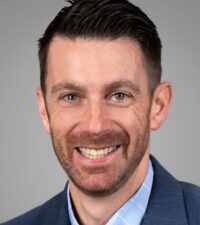
This 11-year-old dancer has cardiomyopathy, but thanks to vigilance from her parents and her cardiology team, she is able to do the things she loves.
By Maureen Gilmer, Riley Children’s Health senior writer, mgilmer1@iuhealth.org
Gianna Knight is a whirlwind of activity. The 11-year-old has a busy calendar filled with dance, ice-skating, volleyball, church and school.
And she does all of it with a heart condition.
Diagnosed with hypertrophic cardiomyopathy as a baby, she has been in the care of the Riley Children’s Health cardiology team since 2016.

The sixth-grader, who lives in Highland, Indiana, with her parents, Jim and Mandy Knight, was born with a heart murmur, but it wasn’t until her six-month checkup – when her pediatrician didn’t like the sound of the murmur – that she was referred for further testing, which revealed the condition.
Hypertrophic cardiomyopathy is a chronic heart condition that causes the heart muscle to thicken, making it harder for the heart to pump blood. Symptoms include shortness of breath, chest pain, fatigue, dizziness, fainting and an irregular heartbeat.
There is no cure, but it can be managed with medications or, depending on the severity, other more serious interventions, including surgery, might be necessary.
Patients with the condition are advised to avoid competitive sports and intense workouts, but thanks to the support she has received at Riley, Gianna is able to pursue her passions, within reason.

“She doesn’t do soccer or basketball, but she is very active,” Mandy Knight said about her daughter. “They are happy with her activity level.”
And Gianna and her parents are happy with their Riley team, which includes cardiologist Dr. John Parent and nurse practitioner Nichole Gralia, who leads the cardiology advanced practice provider team.
“Dr. Parent and Nichole are worth the (three-hour) trip to Indy,” Mandy said. “The whole staff has been super great.”
Gianna was 3 when she first came to Riley, and she was among the earliest patients to benefit from the hospital’s cardiomyopathy clinic, which was established in 2015 and accredited by the Children’s Cardiomyopathy Foundation in 2017 for its high-quality cardiac care and specialized disease management for children with cardiomyopathy.
The CCF renewed Riley’s accreditation status as a Cardiomyopathy Center of Care program this year.
“Gianna is a good example of why this clinic works,” Dr. Parent said this week. “Kids who present so early with hypertrophic cardiomyopathy are relatively rare. We probably get five to 10 a year at Riley, and we always do a very thorough workup.”
That includes seeing Dr. Parent, who looks at their heart, as well as meeting with a cardiovascular geneticist and a genetic counselor, who can provide context and education, depending on what the results show.

The clinic is able to integrate virtual visits with families who live a long distance from Riley, as Gianna does. As her condition has stabilized over the years, she has been able to reduce her in-person visits to Riley to once annually, paired with an additional virtual visit to review the results of cardiac monitoring.
In between those visits, of course, Mandy said the team makes itself available if any questions or concerns pop up.
“Dr. Parent always responds to my messages so quickly. He’s really sweet, and Nichole is very kind and patient as well.”
Thinking back to those early days when Gianna was a baby, and her parents first learned about the diagnosis, they were naturally concerned but also felt blessed, Mandy said.
“We were OK with whatever health issues she had because she was our gift we prayed for. But during the whole process, the unknown was scary,” she added. “No one could tell us if (her condition) will worsen.”
Today, Gianna continues to do well. If anything, Dr. Parent said, she may have even gotten a little better.
“As she’s gotten older, her hypertrophic cardiomyopathy has not gotten worse,” he said. “I would categorize it as mild now. She was on two medicines, and we were able to wean her off one of those. She’s always had really good energy. She’s a very active young lady.”
While the teen years can sometimes present added challenges due to growth, the cardiologist said there is no reason to think Gianna’s condition will worsen.
“Our expectation for patients with hypertrophic cardiomyopathy is that they will have a normal or near normal life expectancy and have as high a quality of life as possible.”
That could mean activity restrictions down the road, but for now, Gianna is doing well on her medication.
A new medication for more severe hypertrophic cardiomyopathy has been approved for use in adults. Riley is participating in a clinical trial for use of the drug in ages 12-18.
The cardiology and heart surgery programs at Riley Children’s Health are consistently ranked among the best in the nation by U.S. News & World Report.






